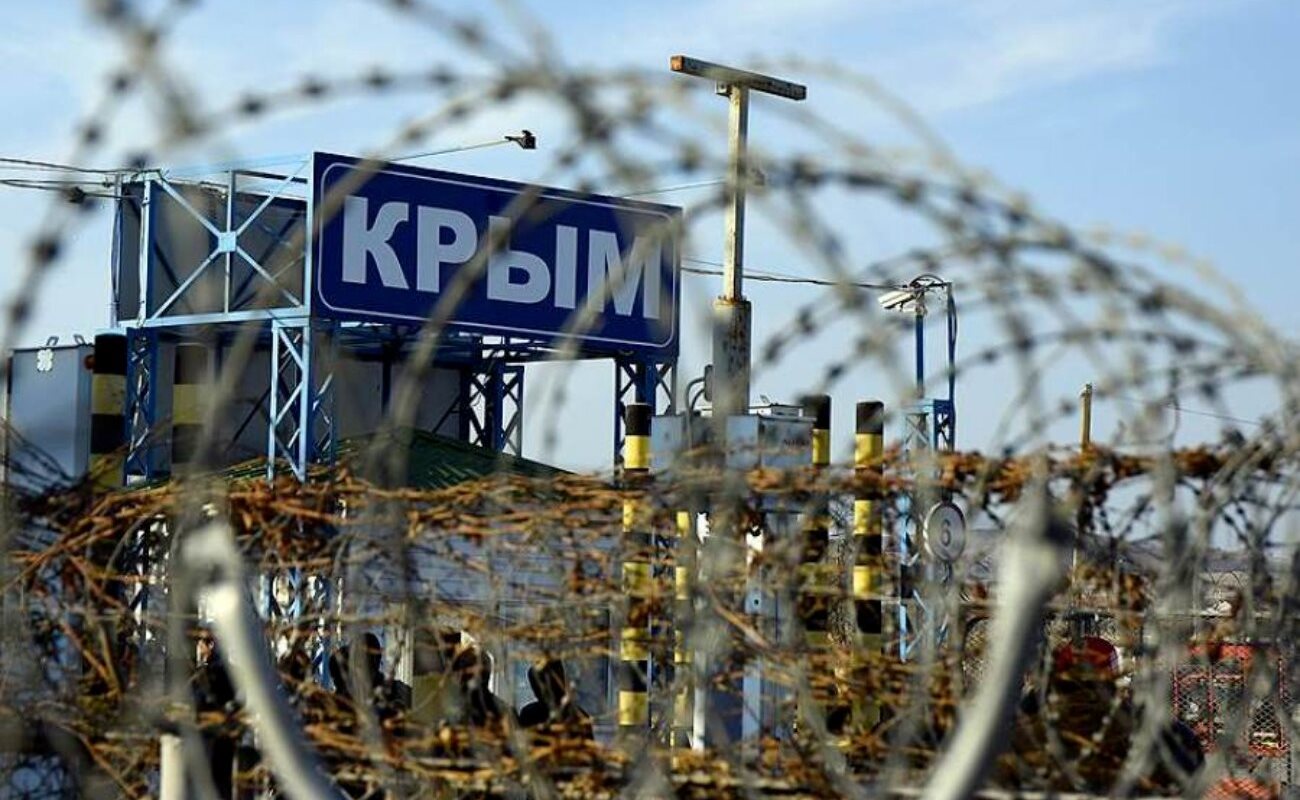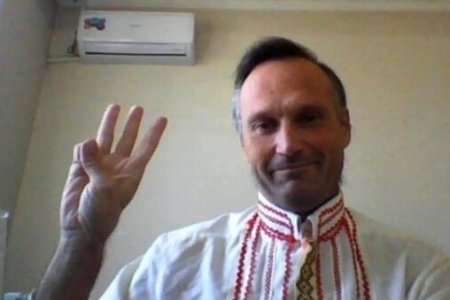
A 20-year-old woman from Russian-occupied Crimea has been fined 50 thousand roubles for posting a video with Ukraine’s national anthem on social media. This is the latest, but surely the most surreal, of many prosecutions in occupied Crimea over songs since Russia began its full-scale invasion of Ukraine.
The occupation ‘Bakhchysarai district court’ reported on 10 March that a resident of the district had faced administrative liability for supposedly ‘discrediting the Russian Federation’s armed forces’.
The description of the alleged ‘offence’ is worth quoting in full. “At 21.00 on 1 March 2023, the resident of the Bakhchysarai district posted on her personal page on one of the social networks, for an unlimited circle of people, video material on which the National Anthem of Ukraine ‘Ще не вмерла Україна» ["Shche ne vmerla Ukrainy i slava, i volia"] was played. Through this, she carried out public actions aimed at discrediting the use of the armed forces of the Russian Federation for the purpose of defending the interests of the Russian Federation and its citizens, of defending international peace and security within the framework of the demilitarization and denazification of Ukraine. In this way, she committed the administrative offence envisaged by Article 20.3.3 § 1 of the RF code of administrative offences”.
No explanation for this extraordinary assertion is attempted, with the ‘court’ preferring to merely repeat the claim after saying that the woman’s ‘guilt’ had been proven, and that the 50 thousand rouble fine was deemed a suitable punishment. It was, however, claimed that the defendant had “fully admitted her guilt and repented of her actions.” The ruling has yet to become final, however if the defendant chose to admit the charges, quite likely fearing a worse sentence if she didn’t, it seems unlikely that she will appeal.
Although the press service report does not name the person, there was only one administrative case against a woman that day, namely Evelina Rafaelovna Memetova. The ‘judge’ was Vasily Ivanovich Koshelev.
In fact, Crimean Realities also names Evelina Memetova citing the notorious pro-Russian Crimean blogger Oleksandr Talipov who appears to have lodged a complaint against Memetova with the FSB. Talipov has previously published the personal data on his Telegram channel of other Ukrainians in Crimea whom he wishes to see charged with administrative or criminal liability for their support of Ukraine. Talipov has already been involved in the jailing of several Crimean Tatars over a Ukrainian patriotic song at a wedding, and is behind, first the administrative and then criminal charges against former lecturer Andriy Bielozierov.
It is unclear whether Talipov was behind the prosecution and 10-day term of imprisonment in August 2022 of disk jockey Yury Rodionov for playing the Ukrainian song, ‘Wild Field’, with a video accompaniment showing Ukrainian defenders, in a Crimean bar. The response from the enforcement bodies was suspiciously swift, coming within a day of the video being posted on pro-Russian channels.
Talipov was certainly involved in a number of prosecutions in September over a Crimean Tatar wedding in Bakhchysarai. According to Ukrainian MP, Crimean Tatar Mejlis leader and former political prisoner, Akhtem Chiygoz, Ukrainian songs, including the patriotic song that enraged Kremlin supporters, were regularly played at weddings throughout the first eight years of Russian occupation of Crimea.
This time, however, Talipov reacted with ‘outrage’ to the playing of ‘Red Kalyna [Vibernum]’ at a Bakhchysarai wedding, and Stefania, the Eurovision-winning song by the Kalush Orchestra at a Simferopol wedding. By 12 September, the Russian-installed ‘leader’ in occupied Crimea, Sergei Aksyonov had got into the act, demanding that those who “chant pro-Ukrainian slogans and sing nationalist songs” be dismissed or prosecuted. or “other measures within the framework of legislation”.
A mere day later, the same occupation ‘Bakhchysarai district court’ had found several members of the families of the bride or bridegroom, and the disk jockey at the wedding, ‘guilty’ of one or two administrative charges, and jailed most for up to 15 days, or imposed fines. As well as Article 20.3.3 for supposedly ‘discrediting’ the Russian army, some were also charged with ‘propaganda or public demonstration of symbols or other elements of extremist organizations or other symbols, etc. that are banned.” The pretext for the second of these charges was the claim that slogans from the song ‘Chervona Kalyna’ were used by the Organization of Ukrainian Nationalists, which Russia has banned. The real reason for persecuting those who sang or played it is doubtless due to the international prominence and poignance it has gained since Russia’s full-scale invasion of Ukraine. The version first sung alone by Andriy Klyvniuk from Boombox, then accompanied by others in a powerful Zoom performance became known far beyond Ukraine, and formed the basis for a Pink Floyd version which was performed to collect money for the Ukrainian Humanitarian Fund. The ‘expert’ in the case was a certain Dmitry Borisov, a local school history teacher, known for his anti-Ukrainian views.
In October that year, a beauty queen, Olha Valyeva and her friend were accused of ‘discrediting the Russian armed forces’ for a video on Instagram on which both women can be heard singing ‘Chervona Kalyna’. Both were found ‘guilty’, with Valyeva fined 40 thousand roubles, and her less well-known friend jailed for 10 days. That prosecution seems to have been prompted by a denunciation from Leonid Ivlev,a so-called ‘Crimean deputy’ from Russia’s State Duma.
Talipov has, however, been involved in the destruction of lecturer Andriy Bielozierov’s career and the present criminal charges and possible 5-year sentence that he is now facing.



